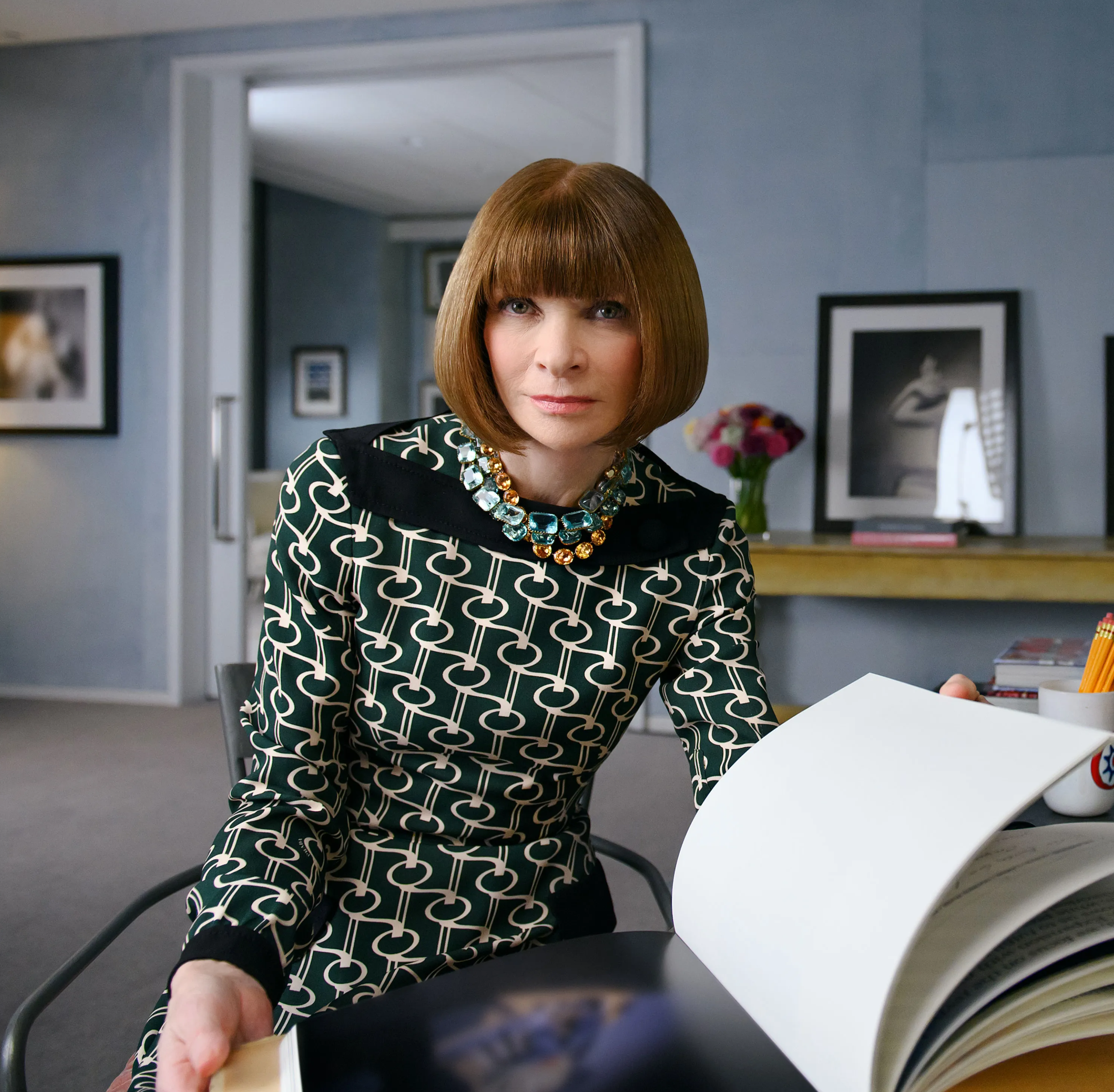
Anna Wintour
Anna Wintour, a titan in the world of fashion, reigns as the quintessential icon of style and influence. At the helm of Vogue, she has redefined the boundaries of fashion, beauty, and culture. With her trademark bob and inscrutable sunglasses, Wintour is a visionary, a trendsetter who dictates the ebb and flow of the fashion industry. Her unerring eye for talent and her formidable presence have transformed Vogue into more than a magazine; it's a global phenomenon. Under her leadership, Vogue has become synonymous with sophistication, innovation, and power, making her not just a fashion editor but a cultural barometer. Whether on the front rows of Paris or in the corridors of the Met Gala, Anna Wintour commands attention, respect, and admiration, leaving an indelible mark on the fashion world.


Anna Wintour’s rise isn’t just impressive—it’s a masterclass in power dynamics. Since taking over the reins at Vogue back in '88, she’s gone from a savvy editor to a bona fide industry linchpin. From her 5 AM wake-up calls to the tactical deployment of hair and makeup before daybreak, she’s the embodiment of discipline and precision.
Wintour's grip on Vogue is ironclad, but her true game-changer has been her ability to elevate the entire fashion industry. She’s not just about curating a brand or running a publication; she’s in the business of building empires. Each decision, from her relentless schedule to her insistence on punctuality, is a calculated step towards a meticulously planned vision.
Her influence is almost regal—recommend a designer, and they’re golden; feature them in Vogue, and they’re set for life. And it’s not just about making a splash in the magazine. Wintour wields her power through the Council of Fashion Designers of America, Vogue Fashion Fund, where she doesn’t just nurture talent—she bankrolls it, often deciding who makes it big and who fades out.
The word 'powerful' seems almost too tepid for Wintour. Her approach is comprehensive; she’s reshaped the industry, carving out a role that surpasses her already formidable title. She’s not just at the meetings; she is the meeting. If you’re not ten minutes early, you’re already too late by Wintour’s standards. Her tenure at Vogue isn’t just an era; it’s a legacy of relentless expansion, branding, and sharp, decisive leadership.
Take the biography "Anna, the Biography" by Amy O’Dell—it’s a deep dive into the Wintour cosmos, unraveling the threads of her vast influence. And then there’s her interview with the Financial Times, an elegant dance of words that paints a portrait of a woman who’s crafted her life’s work into an art form. She’s not just overseeing Vogue; she’s the chief puppeteer of Condé Nast’s grand show, with all but The New Yorker dancing on her strings.
This is a woman who's built a kingdom on deference and awe, a figure so central to her realm that her very presence commands a room. Her career has been a relentless pursuit of passion, and the challenges she faces only seem to fuel her ascent.
Her role in the Met Gala is like that of a grandmaster in a high-stakes game of chess. She dictates the moves, curates the board, and everyone from the celebs to the designers follows her lead. It’s not just a gala; it’s a meticulously orchestrated affair where business and creativity collide, all under Wintour’s watchful eye.
The cultural impact of "The Devil Wears Prada" can’t be overstated. It’s fiction, sure, but it’s the kind of fiction that cements legends. Wintour’s already formidable persona was catapulted into the stratosphere, securing her place as a household name.
Her story is about the relentless pursuit of excellence, the power of a clear vision, and the unyielding execution of a strategy that has not only shaped a magazine but an entire industry. Wintour’s story is a testament to the art of leadership—a relentless, fearless, and unwavering journey of ambition, now woven into the very fabric of fashion itself.
